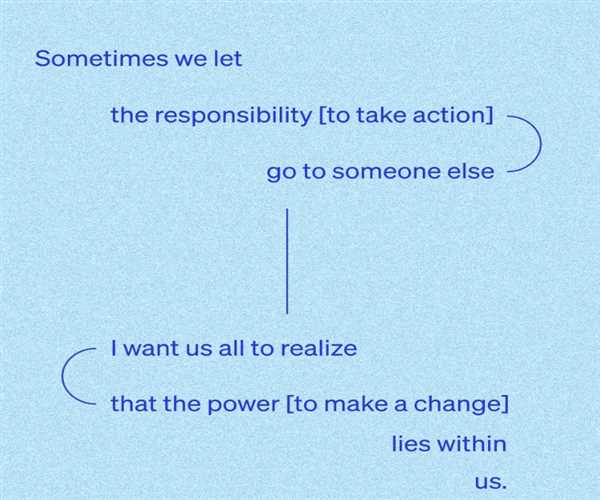
21-Nov-2023 , Updated on 11/30/2023 3:56:45 AM
Does your Failure put you towards Success?
When we understand why we fail and make a solemn commitment to avoid making the same mistakes, failure becomes a stepping stone toward success.
We have all encountered moments of failure. The perception of failure can differ based on individual experiences. So, how can failure be defined?
However, fundamentally, failure can be characterized as a state of not achieving success. Failure is when one cannot fulfill a certain expectation. I would like to present a few illustrations of failures of each and every individual
- In order to maintain a B grade in the class, a high school student must score an A on their upcoming math test. They engage in individualized study and collaborate closely with the teacher. However, upon receipt of the test scores, they were pleasantly surprised to find that they had achieved a solid B grade. This indicates that their grade in the class will be a C+.
- A workforce development program has provided a job seeker with the opportunity to acquire new skills. Although they have completed the program, they are struggling to secure employment. They have submitted job applications for nearly 50 positions but have not received any interview invitations.
- A recent promotion resulted in an employee transitioning into the role of a people manager. However, during their yearly evaluations, they become aware that their team is facing significant difficulties. The team is not meeting their objectives. Furthermore, in addition to all that, the manager is currently receiving constructive criticism regarding the improvement of their abilities in effectively managing their team members.
- However, Failure can be quite painful as well. It fails to evoke positive emotions within us. It has the ability to challenge our pursuit of perfection. Trying again can be a challenging task as we struggle to gather the strength to move forward.
Therefore, failure actually teaches us a significant amount that surpasses our initial expectations.
Resilience
Resilience is acquired through experiencing and overcoming failures. If you are determined to overcome failure, it becomes difficult to avoid acquiring the skills to develop resilience.
Developing resilience is a crucial ability to cultivate in life. Moreover, as you develop and acquire resilience, it proves beneficial in various aspects. Resilience has the ability to foster the development of a mindset geared towards growth. It can assist in embracing appropriate behaviors to conquer change. Furthermore, it has the potential to foster resilience, perseverance, and drive.
Humility
Our self-esteem can easily be hurt. They have the ability to mature and transform into their own powerful creatures. Frequently, experiencing a moderate level of failure can be beneficial for our self-confidence . It helps to maintain our humility. Failure can provide valuable lessons on executing essential traits, such as the development of humility in leadership.
Flexibility
Sometimes, even the most well-thought-out strategies encounter unexpected obstacles. The same applies to failures as well. It's possible that you have established a goal and now recognized that you have miscalculated the extent of it. After gaining insights from your initial failure, it has become evident that tweaking your objective is necessary. Perhaps, you still have the potential to accomplish your objective. You simply need to modify your approach.
This is where flexibility plays a crucial role. Frequently, I ponder on the statement that repeating the same action will not yield different outcomes. Failures provide valuable learning experiences in terms of developing flexibility, adaptability, and resilience in overcoming challenges. It enlightens us on how to effectively utilize change for our benefit. It allows us to remain agile and facilitates the development of a mindset focused on progress and expansion.
Motivation
Learning from failure provides a significant and precious lesson on motivation . Many times, our failures serve as sources of motivation. For instance, imagine you are honing your public speaking abilities. You have successfully delivered numerous presentations and engaged in public speaking engagements. And errors are bound to occur during the journey. However, after giving nine presentations, you finally master it perfectly on your tenth try.
Witnessing advancements throughout the journey serves as a significant driving force. Failure can serve as a powerful motivator and propel us towards achieving our aspirations.
What is the significance of gaining knowledge from mistakes?
We are humans. This signifies that our arrival into this world presents us with ample possibilities for progress and individual growth. We are united in our quest to improve ourselves and our surroundings as we embark on this shared journey. However, it is necessary for us to experience failure in order to achieve our goals.
Gaining knowledge from failure is crucial as it propels us closer towards achieving success. According to research, before achieving success, a significant percentage of entrepreneurs face failure in their business endeavors.

Jeff Bezos, Satya Nadella, Sundar Pichai , Narayana Murthy, and other successful entrepreneurs share a common trait – they have faced setbacks but always possess the mindset to learn from these failures and view them as opportunities to overcome challenges.
Failure sends us back to the starting point
According to its definition, failure refers to the lack of accomplishment or success. In many cases, it compels us to start over from the beginning.
However, once we have experienced failure, we come to understand that we must find new approaches and strategies to tackle the task or achieve the goal. The outcome would not be identical. Therefore, the occurrence of failure invariably prompts the generation of innovative strategies to surmount challenges.
Failure compels us to thoroughly investigate the reasons behind our mistakes.
Failure necessitates reflection. The absence of introspection hinders our ability to acquire knowledge and grow. After experiencing failure, it is crucial that we pause and reflect upon it.
How can we identify the successes and failures?
What can we learn from the things that did not go well?
Where can we identify the root causes of the issues? This analysis enables us to make necessary adjustments and improve in future attempts.
Failure breeds innovation
Just as the saying suggests, we cannot continue with our current actions and anticipate different outcomes. Learning relies heavily on innovation. However, in order to foster innovation, it is crucial for us to understand the factors that caused failure.
The process of failing allows us to gain knowledge by recognizing the areas where we deviated from the right path. From that point onwards, we have the opportunity to put into practice fresh concepts, innovative methods, and novel tactics. The abundance of these factors ultimately leads to a boost in innovation and creativity, providing invaluable support for our educational endeavors.
Failure is a universal part of the human experience. Often, our fear of not succeeding hinders our path to success. The notion of failure has inherently been associated with negativity. However, in truth, the most successful learners are those who embrace their failures. Successful individuals, be they business moguls or well-known personalities, attribute their achievements to the foundation of past failures.
By adopting a positive mindset and embracing the freedom to make mistakes, one can gain invaluable knowledge and insights. Our previous setbacks form an integral component of the educational journey. On certain occasions, it is the significant failures that provide us with the most valuable lessons.
Developing the ability to embrace failure gradually enhances your mental strength and resilience. By cultivating resilient mental fitness, one can tap into their utmost potential and turn their aspirations into a reality.

SEO and Content Writer
I am Drishan vig. I used to write blogs, articles, and stories in a way that entices the audience. I assure you that consistency, style, and tone must be met while writing the content. Working with the clients like bfc, varthana, ITC hotels, indusind, mumpa, mollydolly etc. has made me realized that writing content is not enough but doing seo is the first thing for it.
Comments
Join Our Newsletter
Subscribe to our newsletter to receive emails about new views posts, releases and updates.
Copyright 2010 - 2026 MindStick Software Pvt. Ltd. All Rights Reserved Privacy Policy | Terms & Conditions | Cookie Policy